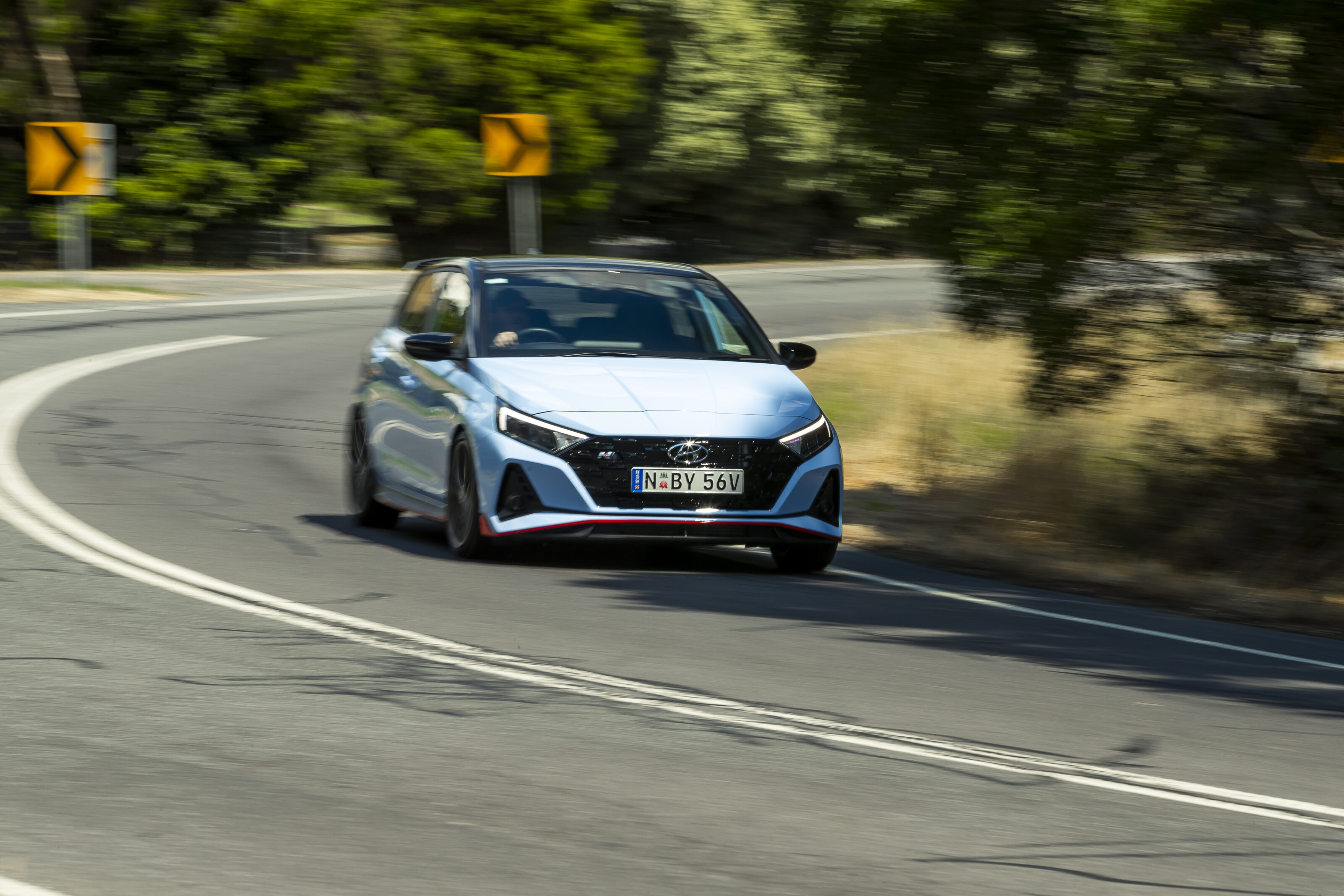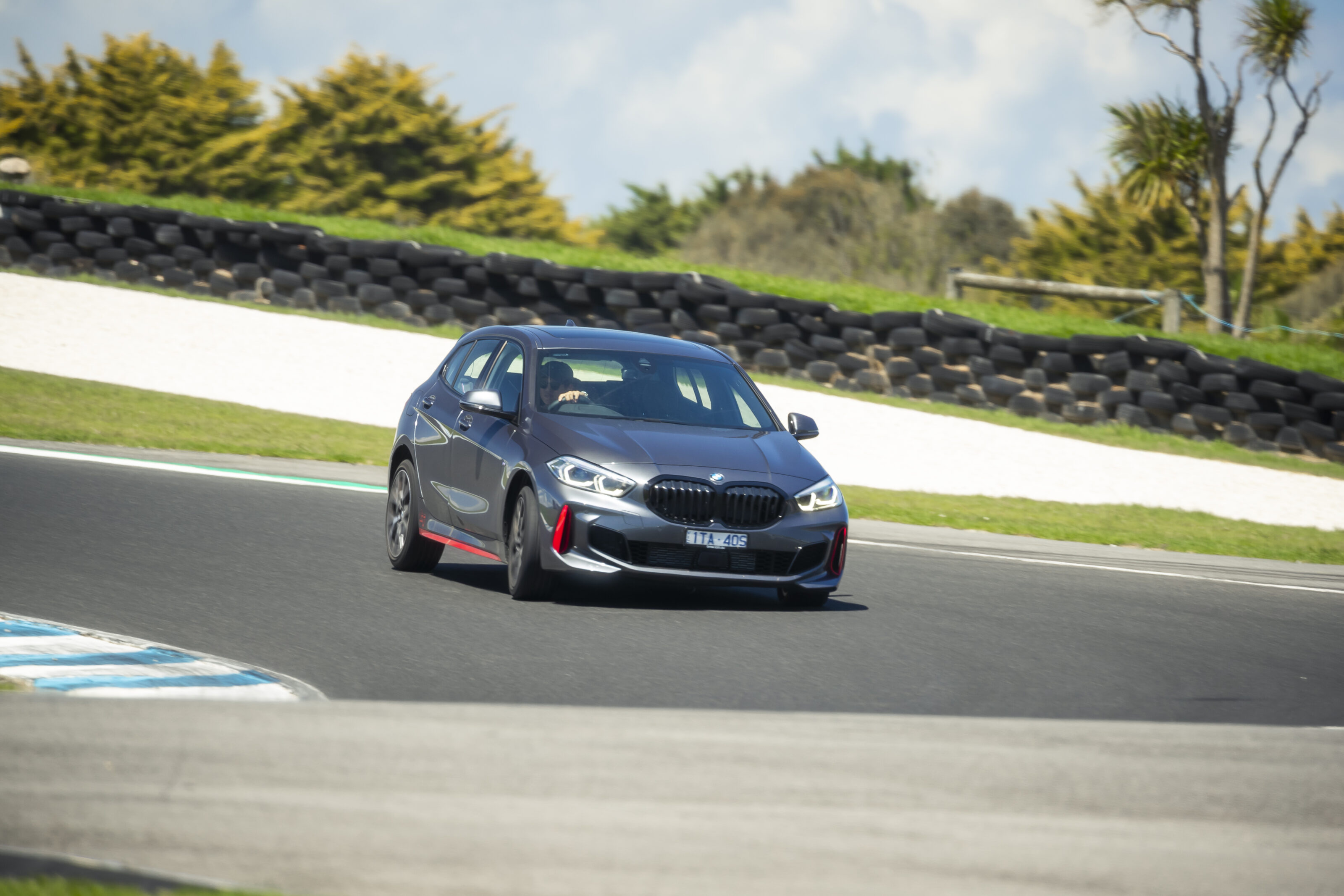The Ford Mustang Mach 1 is the first of Blue Oval’s iconic muscle cars to ever finish MOTOR’s Performance Car of the Year testing without going into a transmission overheating induced limp mode.
We aren’t saying this to put the elbow into Ford, but to point out that they have been working hard on an issue that is important to their customers.
So, what changed to allow the Mach 1 to withstand 80km of hard running at Australia’s fastest permanent race track – the Phillip Island Grand Prix Circuit – without having to limp back to the pits? It is all to do with the transmission.
As the venue for the track testing portion of our Sports Car of the Year award, Phillip Island was always going to be a challenge for the Mach 1. Previous V8-powered Mustangs have struggled on track when having to conduct sustained full-throttle applications. Something there is plenty of at Phillip Island.

Mustangs fitted with the 10-speed automatic have been harder hit by track use than the manual variants.
The first change made for the Mach 1 to survive our track testing, and it’s a major one, is an entirely new manual ‘box compared to the standard GT.
Gone is the Getrag MT-82 gearbox, with the Tremec TR-3160 from the Shelby GT350 stepping in its place. Both units have six ratios, and while the Tremec runs to a higher speed in first gear (86km/h plays 82km/h), the new unit will have drivers shifting at lower speeds in all subsequent gears. This is a good thing.
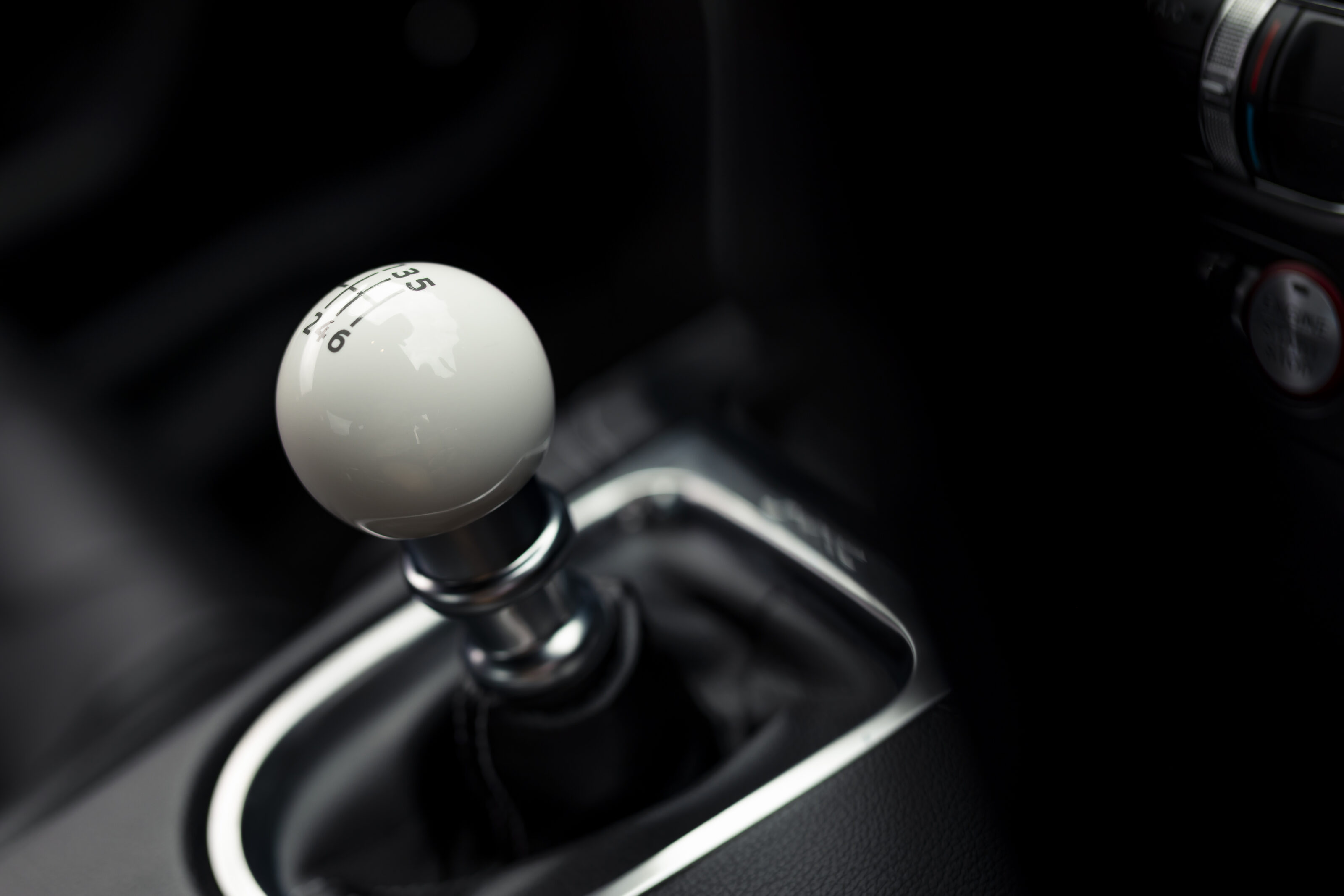
Tremec’s TR-3160 has built itself a solid reputation in the Shelby, being fitted with high strength steel gears and shafts, along with high-capacity tapered bearings and synchronizers. It has been built with circuit use in mind.
The naturally aspirated GT350 also donates its oil cooler to the cause, helping the Mach 1 remain composed on track.
In the Mach 1, Ford has also given the Tremec gearbox rev-matching for the first time as an added bonus.
Going a step further, Ford has also fitted a ‘No Lift Shift’ function to the Mach 1 as standard, backed by a factory warranty.
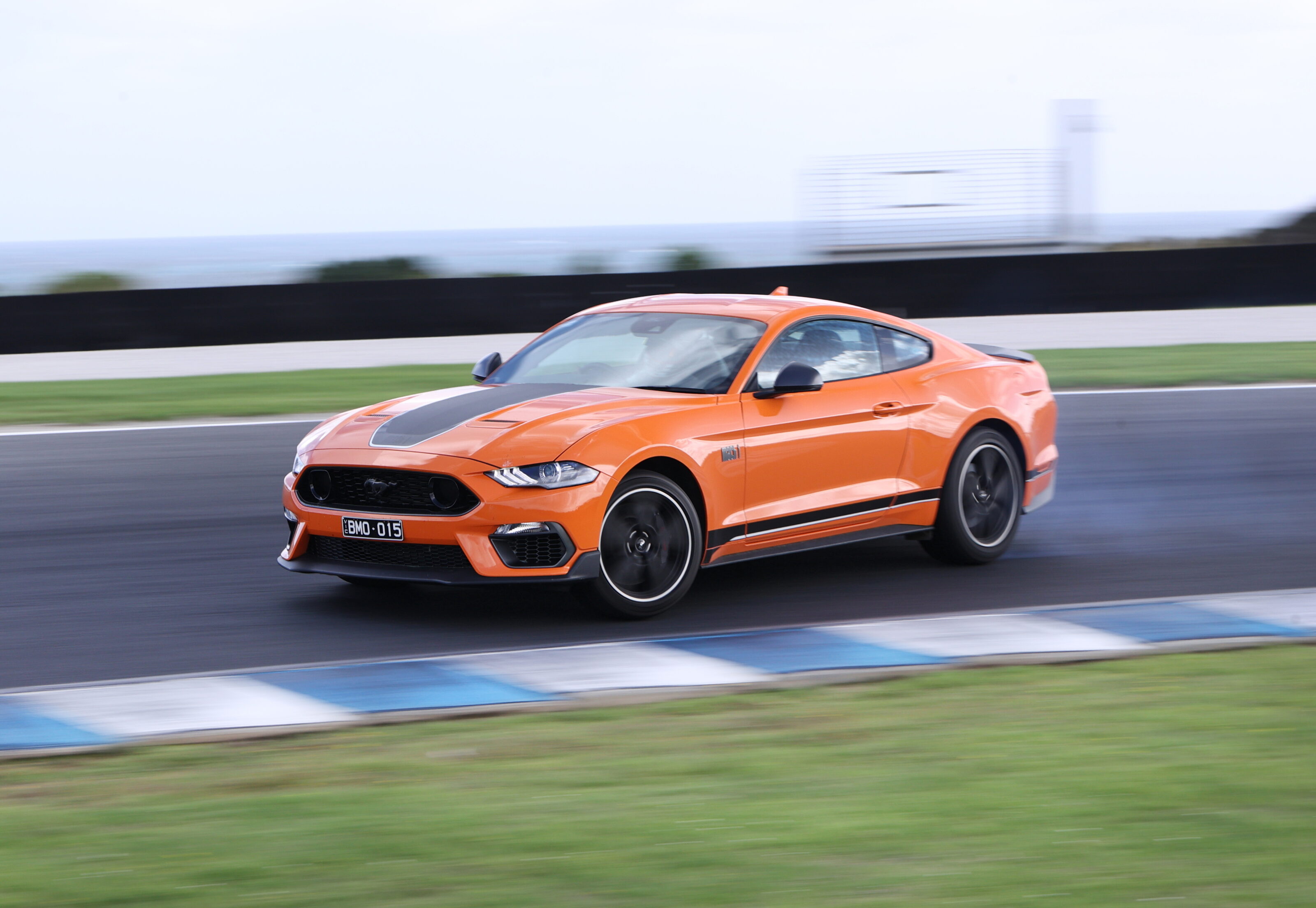
The system allows users to ‘Power Shift’ – a drag racing technique that is cringe-inducing for those of us with some mechanical sympathy built into our personal character. Essentially a technique of maintaining maximum throttle application all the way through an upshift.
Making this possible is the ECU is now capable of detecting when both the throttle and clutch are applied at the same time, cutting ignition for the briefest of moments to allow for the next gear to be selected.
This all adds up to create a Mustang that Australians can finally take to a track day without having to worry about how they are going to get it home again.
We recommend
-
 Reviews
ReviewsFirst drive: Ford Mustang Mach 1 track test
This is judgement day. The Ford Mustang Mach 1 is the Blue Oval’s chance at redemption for Shelby-deprived Aussie Mustang enthusiasts.
-
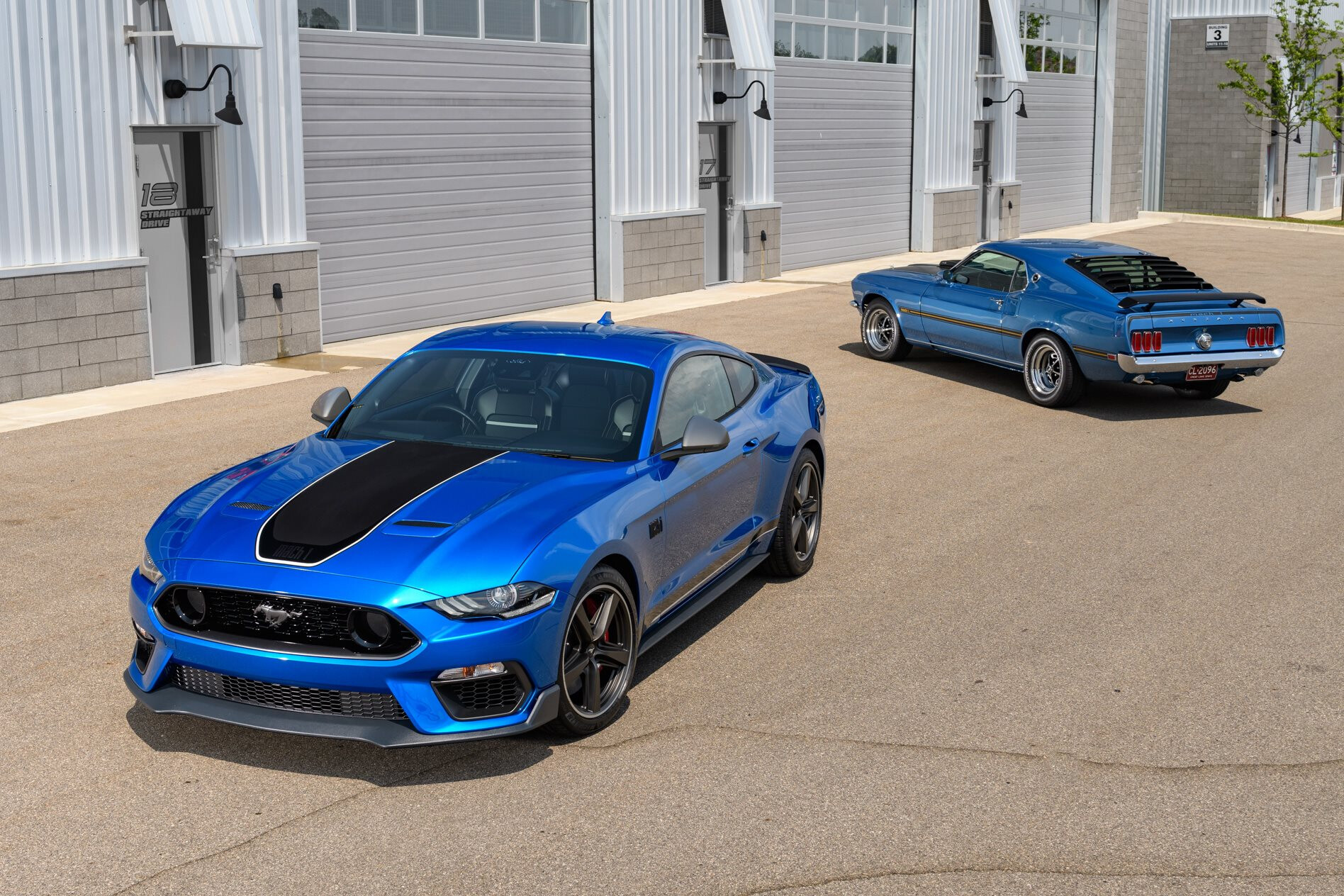 News
NewsPricing confirmed for the 2021 Ford Mustang Mach 1
Ford clears the Mustang Mach 1 for a local landing... but there won't be many and it won't be cheap
-
 News
News2025 New Car Calendar: All the new cars coming to Australia
Take a look at our list of what is expected to launch in Australia in 2025 – plus those we might not see locally just yet




